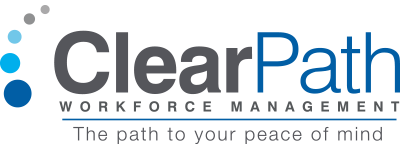Are you looking at possibly outsourcing some or all of your Human Resources functions? During your research, you will come across a few acronyms representing various types of solutions. Differing approaches to outsourcing carry different consequences and benefits for your business. But, big or small, if your company has employees, you need Human Resources (HR).
For smaller companies, HR is often an afterthought – implemented only when you receive a cause of action, as it adds to the plate of an administrative assistant or operations manager. Unfortunately, that puts a lot of pressure on an employee who isn’t fully trained for these responsibilities or doesn’t have time to give it the attention it deserves. When this happens, it’s easy for things to fall through the cracks. That’s why outsourcing Human Resources can be so beneficial. When looking to outsource human resources functions, companies have two main options to utilize: a PEO or an HRO.
What is HRO?
HRO is Human Resources Outsourcing, meaning an independent, third-party provider of common HR services or all of a business’s HR needs. An HRO firm may provide basic HR services or may offer detailed and strategic HR services. Depending on its range and scope, an HRO can address all or only a few of businesses’ various HR needs, including payroll, benefits administration, training, risk management, and recruitment. Some HRO firms allow companies to bundle services, or offer services à la carte so that clients can pick and choose which HR responsibilities they want to outsource to scale with the company’s needs and pay for services accordingly.
The clearest advantage of HROs over PEOs is flexibility. Companies can choose which services to outsource and which to manage in-house. Many small- to medium-size businesses turn to HRO companies so they can focus on business objectives, save time, and cut costs. An HRO service provider helps you with your HR tasks, payroll, benefits, trainings, and compliance, based on your needs. This set-up is flexible because you can choose the services that you want to assign to the third-party company while retaining control of major HR management and admin decisions. An HRO provider can scale up its operations when the company is expanding but doesn’t interfere with the business processes. Working with an HRO firm will allow a company to completely retain its identity and all decided-upon HR functions, while receiving assistance with the desired tasks.
What is a PEO?
A PEO is a Professional Employer Organizer, which takes over the entire HR responsibilities and acts as a co-employer of the company. The agency does everything from payroll, benefits and workers’ compensation to hiring, training, and more. It becomes an extension of the firm, so all HR data and responsibilities are surrendered to the PEO. When a company works with a PEO, the PEO hires the employees and becomes the employer that is on record for tax purposes, creating a co-employment situation. As “employer-of-record,” one essentially hires a company’s employees directly and then “leases” them back to the company for work. The PEO serves as the administrative employer, while the client business acts as the on-site employer. A PEO handles every HR task — from benefits to creating an employee handbook. A PEO also assumes all associated liabilities and legal responsibilities for its clients. Since the PEO is the employer-of-record, it is responsible for federal and state taxes, as well as workers’ compensation. PEOs can also pool employees from their client companies to get reduced rates for health benefits and retirement packages.
What are the Primary Differences?
While HROs and PEOs do offer similar services, fundamental differences exist between the two approaches. An HRO firm offers the advantage of being more flexible, allowing companies to pick and choose which services will be outsourced and which will be managed in-house. A PEO takes care of all HR functions, which may be an advantage or a disadvantage, depending on the organizational needs. Smaller or growing businesses may find it a relief to have all HR functions taken care of so that greater attention can be focused on revenue-bearing tasks.
A PEO is often less service oriented than an HRO, with many clients assigned to each employee. An HRO organization generally acts as a partner with the company, providing advice, consulting, and guidance on compliance issues and organizational strategy. Many companies find that having a knowledgeable HRO representative assisting with these issues is helpful.
What makes ClearPath different?
Most HRO solutions do not provide an employer partnership, meaning that the client remains the Employer of record (EOR). The ClearPath model brings unique value because it is based on a hybrid-approach between an HRO and PEO. You get the advantages of flexibility in the services you want to outsource and the benefit of the Employer of Record. Your business retains control over all business-critical decisions and growth activities, while we manage time-consuming and risky processes such as workers’ compensation, benefits administration, compliance, and tax filing.
Work with a leader in the industry for outsourced Human Resources functions associated with contingent workers. ClearPath provides an integrated program model to manage both freelance risk and spend. In addition to our traditional Employer of Record (EOR), outsourcing functions associated with W-2 contingent workers and Agent of Record (AOR), which streamline the administrative tasks of managing and paying Independent Contractors (IC) 1099 workers and Sub-Vendors services, our IC (Independent Contractor) compliance tool, ClearIC™, provides a multistep process which includes technology gathering and the human element (2-person review in making an IC status determination). Our adherence to worker classification compliance enables the engagement of this highly skilled talent and expands your talent supply chain. ClearIC™ can automate and simplify the Independent Contractor evaluation process while mitigating your risk via our full-service IC vetting process. Now is the time to contact ClearPath for a complimentary review of your potential risk and exposure analysis.
- Written by: Connie Wendt
- Posted on: September 26, 2018
- Tags: AGENT OF RECORD, EMPLOYER OF RECORD SERVICE, EMPLOYMENT COMPLIANCE, EMPLOYMENT PRACTICES, ENGAGING W-2 WORKERS, HIRING PROCESS, INDEPENDENT CONTRACTOR, INDEPENDENT CONTRACTOR COMPLIANCE, SELF SOURCED WORKERS, SUBCONTRACTORS, W-2 Worker Classification, Workforce Classification

